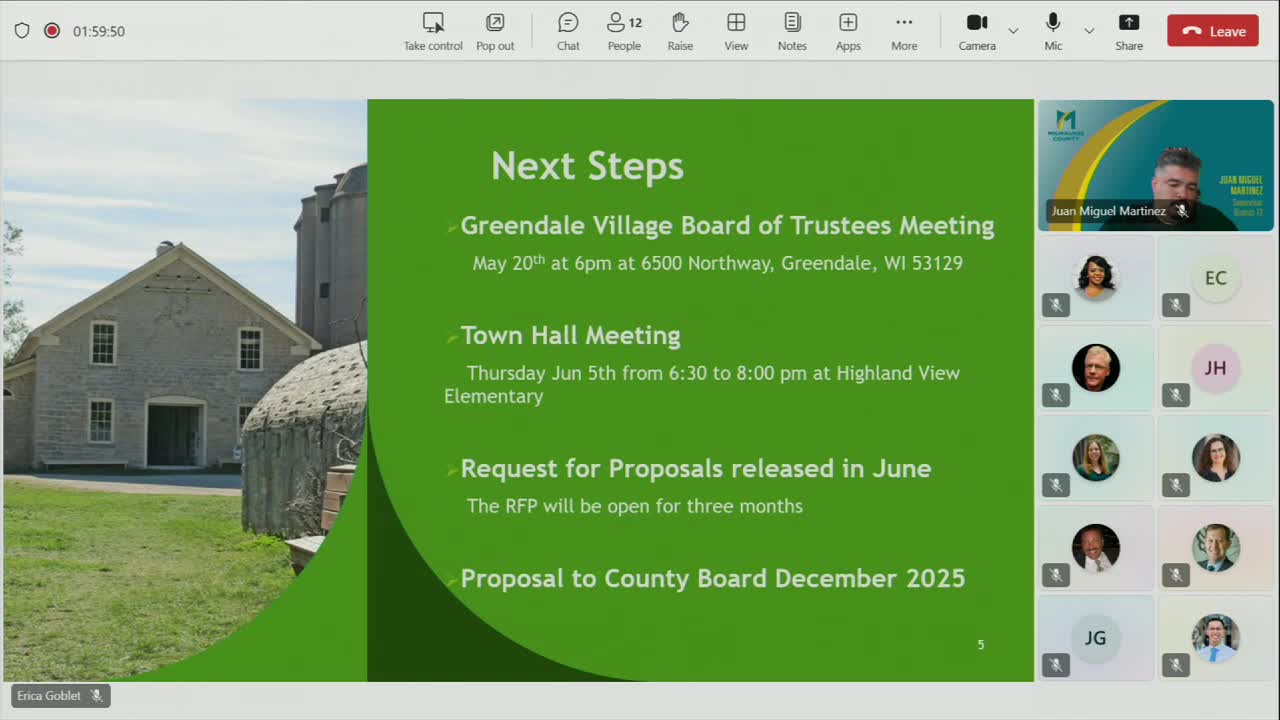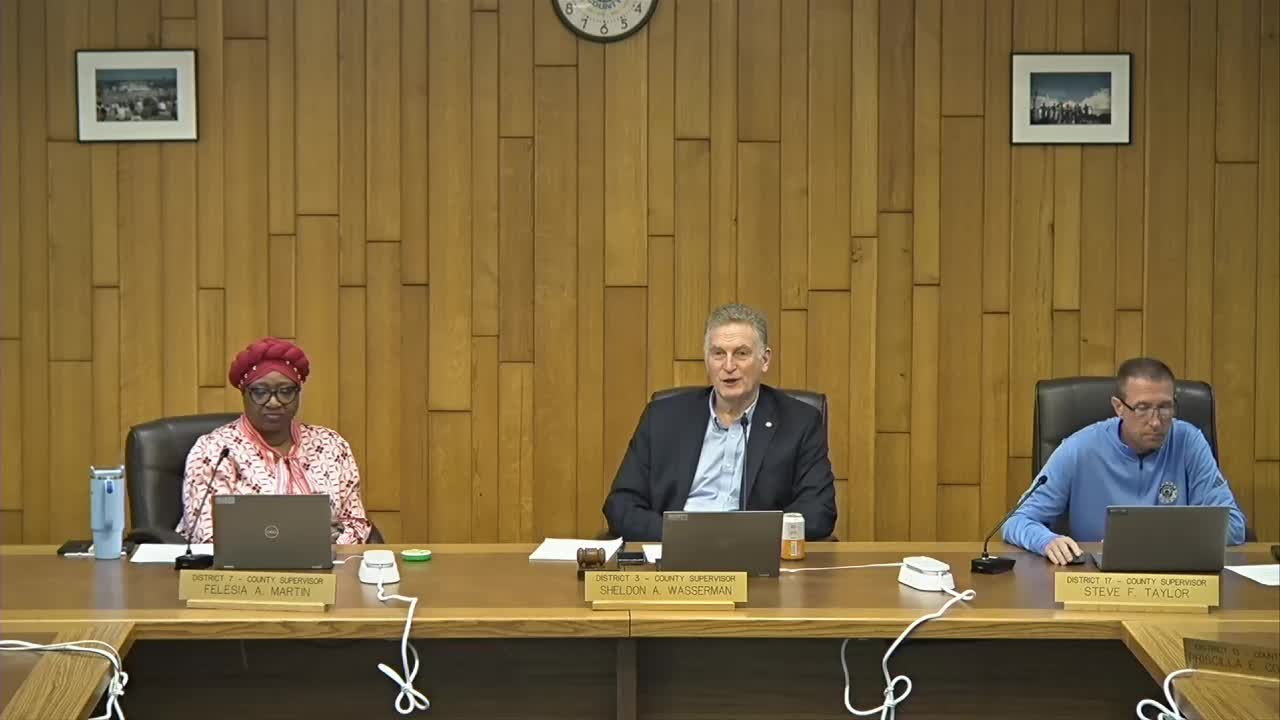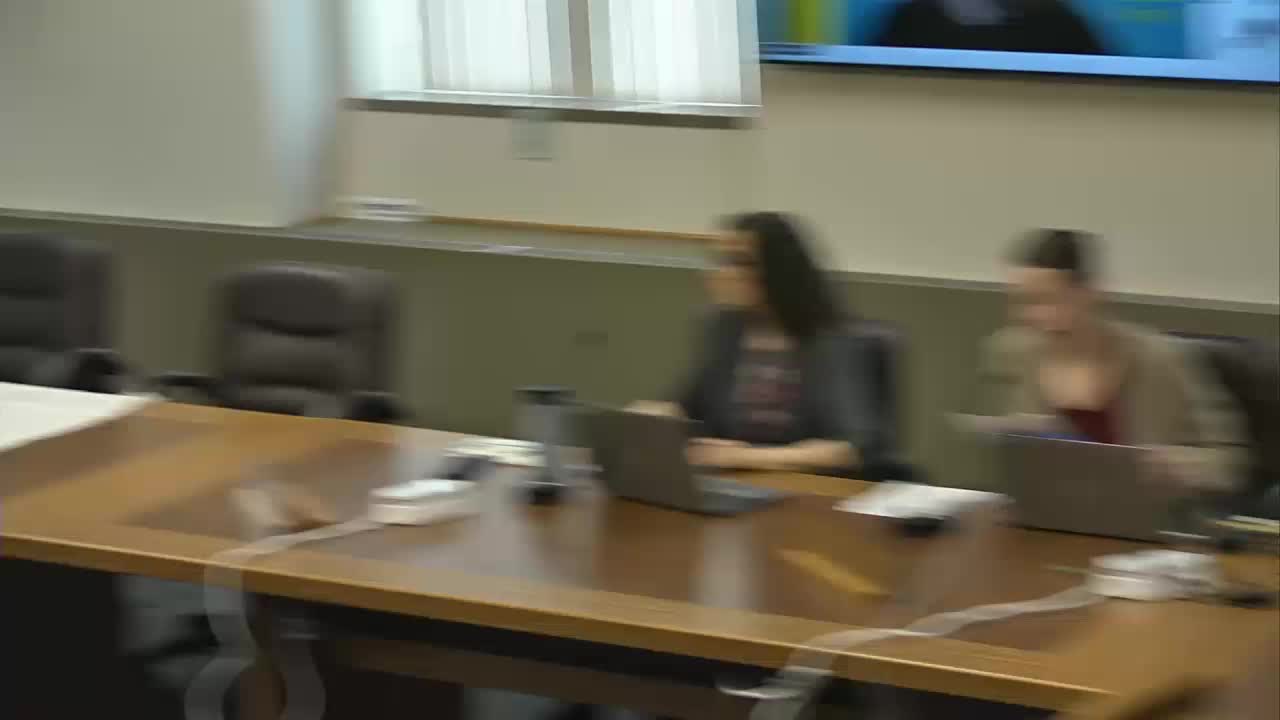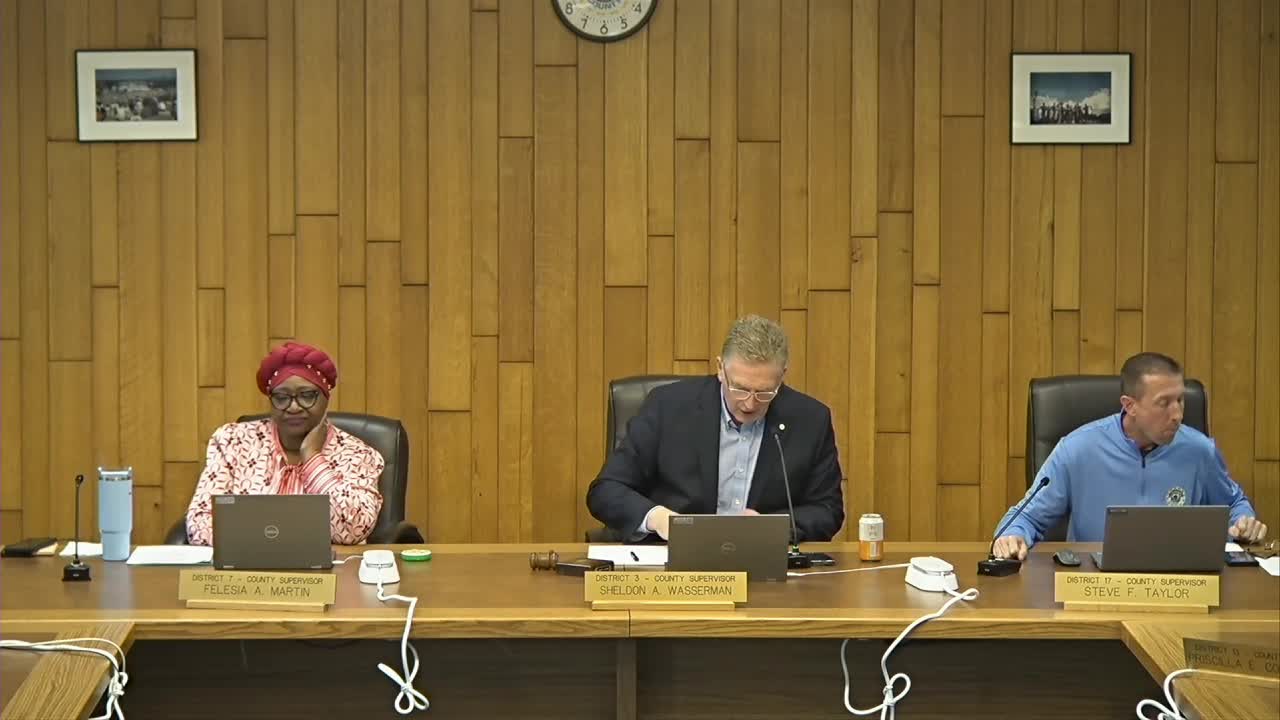Article not found
This article is no longer available. But don't worry—we've gathered other articles that discuss the same topic.

County seeks public input and potential partners for Trimborne Farm; planning costs estimated before larger repairs

Weir Nature Center proposes five‑year site improvements: garage, nature‑explore area, trail repairs and erosion work

Committee approves $82,072 settlement and three‑year extension with Zillie Hospitality at Burnet Botanical Gardens

